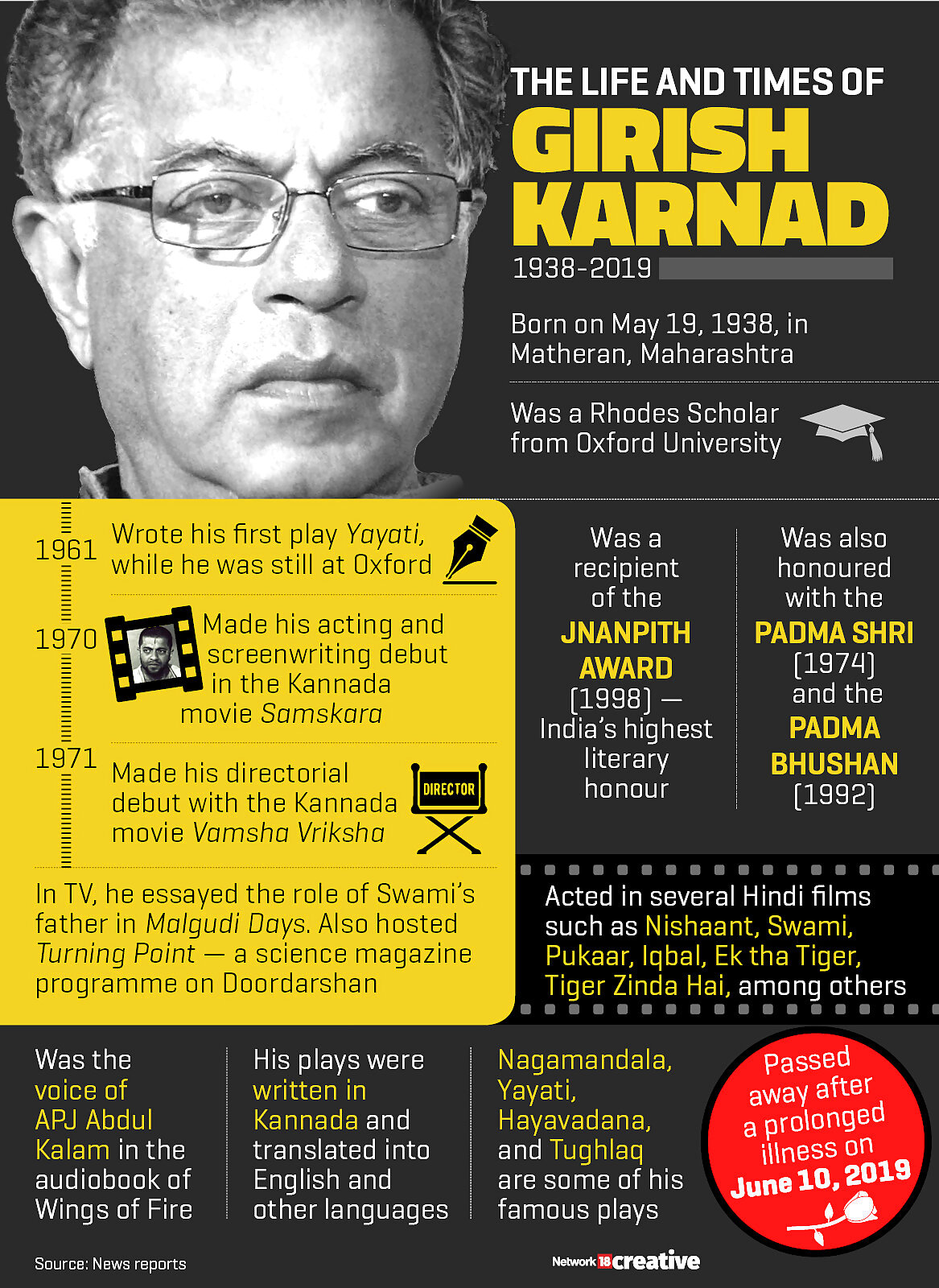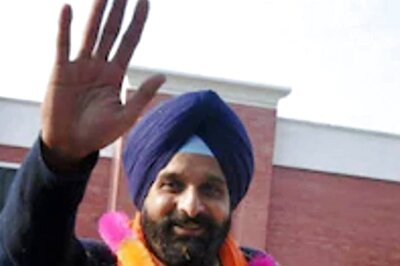
views
Girish Karnad once revealed, "When my mother was expecting me, she decided she did not want to have any more children...So, she persuaded my father to take her to a doctor for an abortion. But, I will forever be grateful to that doctor, because that day she did not come to her clinic. My mother waited half a day, got bored and returned."
Eventually, his mother gave up on the idea of abortion, and Karnad was born. When Karnad's mother told him this story for the first time his reaction was that of utter shock. "It was so shocking for me to think that there will be this world without me in it," he said. Unfortunately, today such a day has come, that Karnad is no more in this world. However, the actor has left behind an oeuvre of work that will be valued for years to come, as modern literary treasures.
Read: PM Narendra Modi, Kamal Haasan Join Film Industry in Mourning Girish Karnad's Death

Many years ago, when he was a young Rhodes scholar, he had harboured the secret dream of being a great English poet -- like TS Eliot, and WH Auden. But when he sat down to write, what poured out of him was a Kannada play -- not an English poem -- shaped from Indian myths and lores, called Yayati. After that, Karnad returned to India from Oxford and began his career as a playwright and eventually went on to act and direct movies.
Karnad's plays are often wonderfully woven and aim at either bringing social reform or pointed out the hypocrisy of our society -- be it caste, or gender-based discrimination, or religious intolerance. In Yayati, for example, it was Puru's wife, who is victimised, and yet, like in reality, little thought was spared for her because she was a woman. Likewise, in Hayavadana, the status of a woman in her family as well as in the society was explored. In Tale-Danda, Karnad tried to depict the need for an equal society, be it in terms of class or caste.
Read: Girish Karnad (1938-2019): Here are His Best Plays That Narrated Common People's Stories
Karnad also went on to play many memorable film characters onscreen. He was the affectionate but slightly strict father of Swami in iconic TV series Malgudi Days, Verghese Kurien in Manthan, and the fierce cricket coach in Iqbal. But, in real life, Karnad played a far more difficult role of being that man who always stood up when freedom of expression was under threat, or when secular voices were being drowned. Needless to say that it didn't make him very popular among Hindutva fundamentalists, and the actor, who had otherwise had a blemish-less career, found himself among many controversies and even death threats. But, Karnad never shied away from taking a stance.
Last year, during the police investigation of journalist Gauri Lankesh's death, it was reportedly revealed that Karnad was also on the hit list. The report, which was published last year in NDTV stated that Girish Karnad's security was "beefed up following the killing of Ms Lankesh." However, that did not scare Karnad. In fact, on the first death anniversary of Lankesh, Karnad sat in the audience, with a placard that read, "Me Too Urban Naxal." Although the actor was in poor health and had a tube wrapped around his nose, he made an appearance in the event to speak his mind.
Several years ago, during a literary festival in Mumbai, in which British Writer VS Naipaul was being given a lifetime achievement award, and Karnad only had a masterclass in theatre to teach, the actor took on the stage, and instead of talking about theatre called out Naipaul for his 'anti-muslim' views. It didn't go down well with most, as Naipaul was, and still remains, a celebrated writer in his own right, but Karnad did not kowtow to pressures and criticised Naipaul vehemently for his misrepresentation of Indian history.
See: Girish Karnad: Rare Pictures of the Iconic Theatre and Film Personality
Indian history, myths and folklores often added fiber to his stories, and while his characters were centuries old, and his stories spoke of a different time, they always managed to hold up a mirror to our present day society, and showed us what needs to be weeded out, and what needs to be nurtured.
Follow @News18Movies for more



















Comments
0 comment